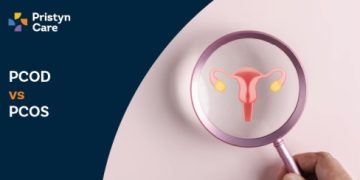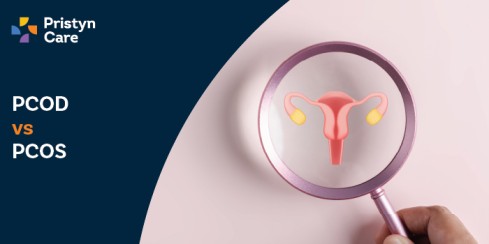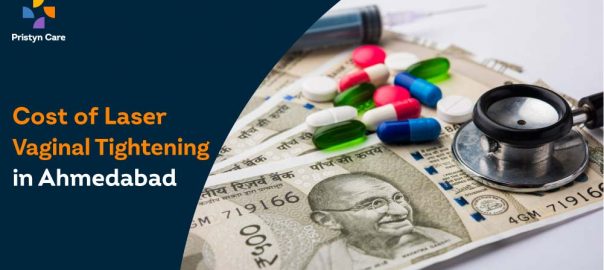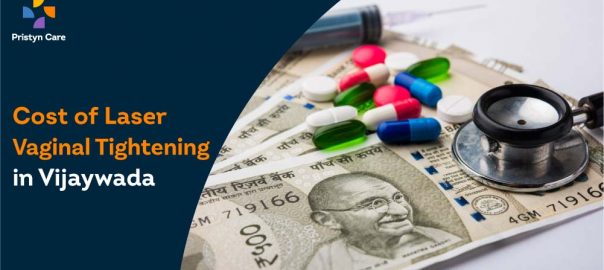![]() Views: 150
Views: 150
PCOD Vs PCOS
Do you have irregular periods, weight gain, or skin problems? You might be dealing with PCOD or PCOS, two conditions often mistaken for each other. While they share similar names and symptoms, understanding their differences is crucial.
Dedicated Support at Every Step!
Our Doctors are available 24 hours a day, 7 days a week to help you!
This blog will explore what sets PCOD and PCOS apart, helping you identify which one might be affecting you. We will cover how each condition impacts your body and the distinct treatment approaches for both. It is important to get the right diagnosis to manage these health issues effectively.
Table of Contents
What is PCOD?
Polycystic Ovarian Disease (PCOD) is a common health condition affecting women during their reproductive years. It involves hormonal imbalances that impact the ovaries, the organs responsible for producing eggs and hormones like estrogen and progesterone.
PCOD leads to the ovaries developing multiple small cysts. These cysts are actually follicles that contain immature eggs. Because of hormonal imbalances, these eggs rarely mature enough to trigger ovulation. This disruption contributes to irregular menstrual cycles and an array of symptoms.
Common signs include irregular or no menstrual periods, excessive hair growth, acne, and weight gain. Some women also experience thinning hair and darkening of the skin, particularly around the neck, groin, and under the breasts.
Causes of PCOD
The exact causes of PCOD are not fully understood, but several factors contribute to its development:
- Genetics: A family history of PCOD increases your risk.
- Insulin resistance: Many women with PCOD have insulin resistance, meaning their bodies can use insulin inefficiently, leading to higher insulin and blood sugar levels.
- Inflammation: Women with PCOD often have increased levels of inflammation in their body.
- Hormonal imbalance: Imbalances in hormones such as androgens are higher than normal in PCOD sufferers.
Diagnosis of PCOD
Diagnosing PCOD involves several steps:
- Medical history: Your doctor will discuss your symptoms, menstrual cycle, and any past health issues.
- Physical exam: This may include checks for signs of excess hair growth, insulin resistance, and acne.
- Blood tests: These tests check hormone levels, which can indicate PCOD if androgen levels are high.
- Ultrasound: This imaging test can visualise the ovaries and detect the presence of cysts or other abnormalities.
No Cost EMI, Hassle-free Insurance Approval
What is PCOS?
Polycystic Ovary Syndrome (PCOS) is a hormonal disorder common among women of reproductive age. It is marked by a set of symptoms that can affect the body both hormonally and metabolically.
PCOS is characterised by an excess of androgens (male hormones) in the body, which can disrupt the normal functioning of the ovaries. The main symptoms of PCOS include irregular or prolonged menstrual periods, excessive hair growth (hirsutism), acne, and obesity.
Additionally, many women with PCOS struggle with infertility due to irregular ovulation or absence of ovulation. Other signs might include thinning hair on the scalp and patches of thick, darker, velvety skin known as acanthosis nigricans.
Causes of PCOS
The causes of PCOS are not entirely understood, but several factors are known to play a role:
- Genetic predisposition: There is a strong familial link, suggesting genetics play a significant role.
- Insulin resistance: A large percentage of women with PCOS have insulin resistance, which increases insulin levels and can worsen hormonal imbalances.
- Low-grade inflammation: Women with PCOS often exhibit low levels of chronic inflammation that might stimulate polycystic ovaries to produce androgens.
- Hormonal imbalance: Besides high androgen levels, imbalances in other hormones like luteinizing hormone (LH) and follicle-stimulating hormone (FSH) also contribute to the development of PCOS.
Diagnosis of PCOS
Diagnosing PCOS typically involves the following steps:
- Patient history: Doctors start by assessing symptoms, menstrual cycles, and weight changes.
- Physical examination: A physical check might reveal signs like excess hair growth, acne, and obesity.
- Blood tests: These are crucial for measuring hormone levels and detecting high androgens.
- Ultrasound: An ultrasound of the ovaries is often performed to look for the presence of cysts and evaluate the ovarian volume.
Comparing PCOD and PCOS
While PCOD and PCOS are often used interchangeably, they are distinct conditions with unique implications for women's health.
Similarities Between PCOD and PCOS
Both PCOD and PCOS share several overlapping symptoms, which often leads to confusion in diagnosis. Here are some of the similarities:
- Irregular Menstrual Cycles: Women with either condition may experience irregular periods or extended menstrual cycles due to hormonal imbalances.
- Symptoms of Hyperandrogenism: Both conditions can cause symptoms related to high levels of male hormones (androgens), such as excessive hair growth (hirsutism), acne, and sometimes male-pattern baldness.
- Ovarian Cysts: In both PCOD and PCOS, ultrasound examinations often reveal the presence of multiple cysts on the ovaries.
- Fertility Issues: Both PCOD and PCOS can impact fertility due to irregular ovulation or the absence of ovulation, making conception challenging.
- Risk of Insulin Resistance: Both conditions are associated with a higher risk of developing insulin resistance, which can lead to type 2 diabetes if not managed properly.
Key Differences
Despite their similarities, PCOD and PCOS are fundamentally different in terms of their impact on the body and the severity of their symptoms:
- Definition and Nature: PCOD is not considered a disease but rather a condition that stems from a hormonal imbalance. PCOS, on the other hand, is recognised as a metabolic disorder that affects several body systems beyond the reproductive hormones.
- Prevalence of Symptoms: PCOS tends to present more severe symptoms. Women with PCOS are more likely to suffer from significant insulin resistance, severe acne, and more substantial fertility issues compared to those with PCOD.
- Weight Issues: While weight gain is common in both conditions, it is more pronounced and more problematic in PCOS due to its association with metabolic complications, including obesity and cardiovascular risks.
- Treatment and Management: The treatment for PCOS often involves a more comprehensive approach due to its complexity and potential health risks. It may include medications to regulate insulin and hormone levels, as well as recommended lifestyle changes to manage weight and metabolic health. In contrast, PCOD management primarily focuses on lifestyle modifications, such as diet and exercise, to restore hormonal balance and improve symptoms.
- Long-term Health Consequences: PCOS is associated with a broader range of long-term health risks, including heart disease, endometrial cancer, and severe metabolic syndrome, which are less prevalent or severe in cases of PCOD.
Health Implications
Both PCOD and PCOS can lead to significant health challenges if not managed effectively. It's important to understand the long-term health risks associated with each condition to take preventive measures and seek appropriate treatment.
Long-Term Health Risks of PCOD
While PCOD is less severe than PCOS, it still poses certain health risks that can impact life quality:
- Type 2 Diabetes: Women with PCOD are at an increased risk of developing type 2 diabetes due to insulin resistance. Regular monitoring of blood sugar levels is crucial.
- High Cholesterol and Heart Disease: PCOD can lead to higher levels of LDL (bad cholesterol) and lower HDL (good cholesterol), increasing the risk of heart disease.
- High Blood Pressure: This condition is common in women with PCOD, raising the risk of cardiovascular diseases.
- Weight Gain: Many women with PCOD experience weight gain, which can lead to obesity. Obesity further increases the risk of diabetes, high blood pressure, and heart disease.
- Endometrial Cancer: Irregular menstrual cycles can lead to endometrial hyperplasia, where the lining of the uterus becomes too thick. This condition increases the risk of endometrial cancer.
Long-Term Health Risks of PCOS
PCOS is associated with several severe long-term health risks due to its profound impact on a woman's hormonal and metabolic health:
- Severe Insulin Resistance and Type 2 Diabetes: Women with PCOS are often insulin resistant, which can severely elevate their risk of developing type 2 diabetes.
- Cardiovascular Disease: PCOS increases the risk of heart problems due to high levels of insulin, blood sugar, and cholesterol.
- Metabolic Syndrome: This cluster of conditions, including high blood pressure, high sugar levels, excess body fat around the waist, and abnormal cholesterol levels, is more common in women with PCOS.
- Endometrial Cancer: As with PCOD, the risk of endometrial cancer is higher due to irregular menstrual cycles and unshed endometrial lining.
- Mental Health Issues: Depression and anxiety are significantly higher in women with PCOS, likely due to hormonal imbalances and the stress of managing the symptoms.
- Sleep Apnea: Women with PCOS are at a higher risk of developing sleep apnea, particularly if they are overweight. This condition can lead to further complications, including heart disease.
Treatment Options
Effective management of PCOD and PCOS involves a combination of lifestyle adjustments and medical treatments. Each approach aims to alleviate symptoms and reduce the risk of long-term health complications.
Lifestyle Changes and Home Remedies
Simple changes in daily habits can significantly impact the management of PCOD and PCOS:
- Balanced Diet: Eating a diet rich in fruits, vegetables, whole grains, and lean proteins can help manage weight and balance hormones. Avoid processed foods and excess sugars to reduce insulin spikes.
- Regular Exercise: Aim for at least 30 minutes of moderate exercise most days of the week. Activities like walking, swimming, and cycling can help manage weight, reduce blood glucose levels, and improve mood.
- Weight Management: Maintaining a healthy weight reduces the risk of developing diabetes and heart disease and can help regulate menstrual cycles.
- Stress Reduction: Techniques such as yoga, meditation, and mindfulness can help lower stress levels, which may positively influence hormonal balance.
- Avoiding Stimulants: Limiting intake of caffeine and avoiding smoking can help manage symptoms as these stimulants can exacerbate hormonal imbalances.
Medical Treatments for PCOD
For those who need medical intervention, several options are available:
- Birth Control Pills: These can help regulate menstrual cycles, reduce levels of male hormones, and clear acne. They are a common first step in managing symptoms.
- Metformin: Originally used to treat type 2 diabetes, Metformin can also help improve insulin resistance, a common issue in PCOD.
- Anti-Androgens: These medications can reduce excessive hair growth and acne by blocking the effects of male hormones.
Medical Treatments for PCOS
Medical treatment for PCOS often requires more aggressive intervention due to its broader metabolic implications:
- Birth Control Pills: Similar to PCOD, these pills help regulate periods and reduce androgen levels, which helps control symptoms like hair growth and acne.
- Metformin: This drug helps with insulin resistance and can also aid in weight loss, which is particularly beneficial in PCOS as it can improve ovulation.
- Clomiphene Citrate: A fertility medication that can help women with PCOS ovulate to increase their chances of pregnancy.
- Letrozole: Another fertility drug that can be more effective than Clomiphene in inducing ovulation in women with PCOS.
- Surgical Options: Procedures like ovarian drilling can reduce androgen levels and induce ovulation in women who do not respond to medication.
Living with PCOD/PCOS
Managing daily life with PCOD or PCOS can be challenging, but with the right strategies, it is entirely manageable. Adopting a structured approach to your lifestyle can significantly alleviate symptoms and improve your quality of life.
Daily Management Tips
Effectively managing PCOD/PCOS involves being proactive about your health:
- Monitor Your Health Regularly: Keep track of your menstrual cycle, symptoms, and any changes in your body. Regular check-ups with your doctor are essential.
- Maintain a Daily Journal: Documenting your food intake, physical activity, and mood can help identify triggers and effective coping strategies.
- Stay Informed: Understanding your condition empowers you to make informed decisions about your health. Seek resources and support groups to stay updated.
Dietary Recommendations
What you eat plays a crucial role in managing PCOD/PCOS:
- Opt for Low-GI Foods: Foods with a low glycemic index (GI) such as whole grains, legumes, nuts, seeds, fruits, and vegetables help manage insulin levels.
- Incorporate Healthy Fats: Include sources of omega-3 fatty acids like fish, avocados, and flaxseeds, which can help reduce inflammation.
- Balance Your Meals: Ensure each meal includes a balance of carbohydrates, proteins, and fats to maintain energy levels and prevent insulin spikes.
- Limit Processed Foods and Sugars: Reducing your intake of high-GI foods, such as sugary snacks and white bread, can prevent glucose fluctuations and help manage symptoms.
Exercise and Wellness Practices
Regular physical activity and mindfulness can improve PCOD/PCOS management:
- Regular Exercise: Aim for at least 150 minutes of moderate-intensity exercise per week. This can include walking, cycling, or swimming. Regular exercise helps in weight management and improves insulin sensitivity.
- Strength Training: Incorporating strength training exercises at least twice a week can help build muscle mass, which is beneficial for metabolism.
- Yoga and Meditation: These practices not only reduce stress but also help in balancing hormone levels, improving symptoms of PCOD/PCOS.
- Adequate Sleep: Ensure you get 7-9 hours of quality sleep each night. Sleep has a direct effect on hormones and insulin levels.
Conclusion
Peeling back the layers of PCOD and PCOS reveals a critical truth: while they share symptoms, they demand tailored management strategies. Understanding these differences empowers us to seek appropriate treatments and make informed lifestyle choices. Early detection is crucial for managing symptoms effectively and minimising long-term health risks. Engage openly with healthcare professionals and take an active role in your health journey.
Whether it’s adapting your diet, integrating regular exercise, or adhering to prescribed treatments, every action counts. As we conclude our discussion on PCOD and PCOS, let's embrace a proactive approach to health, enriched by continuous learning and support.
Your path to wellness is unique, and armed with knowledge, you can navigate it confidently.












